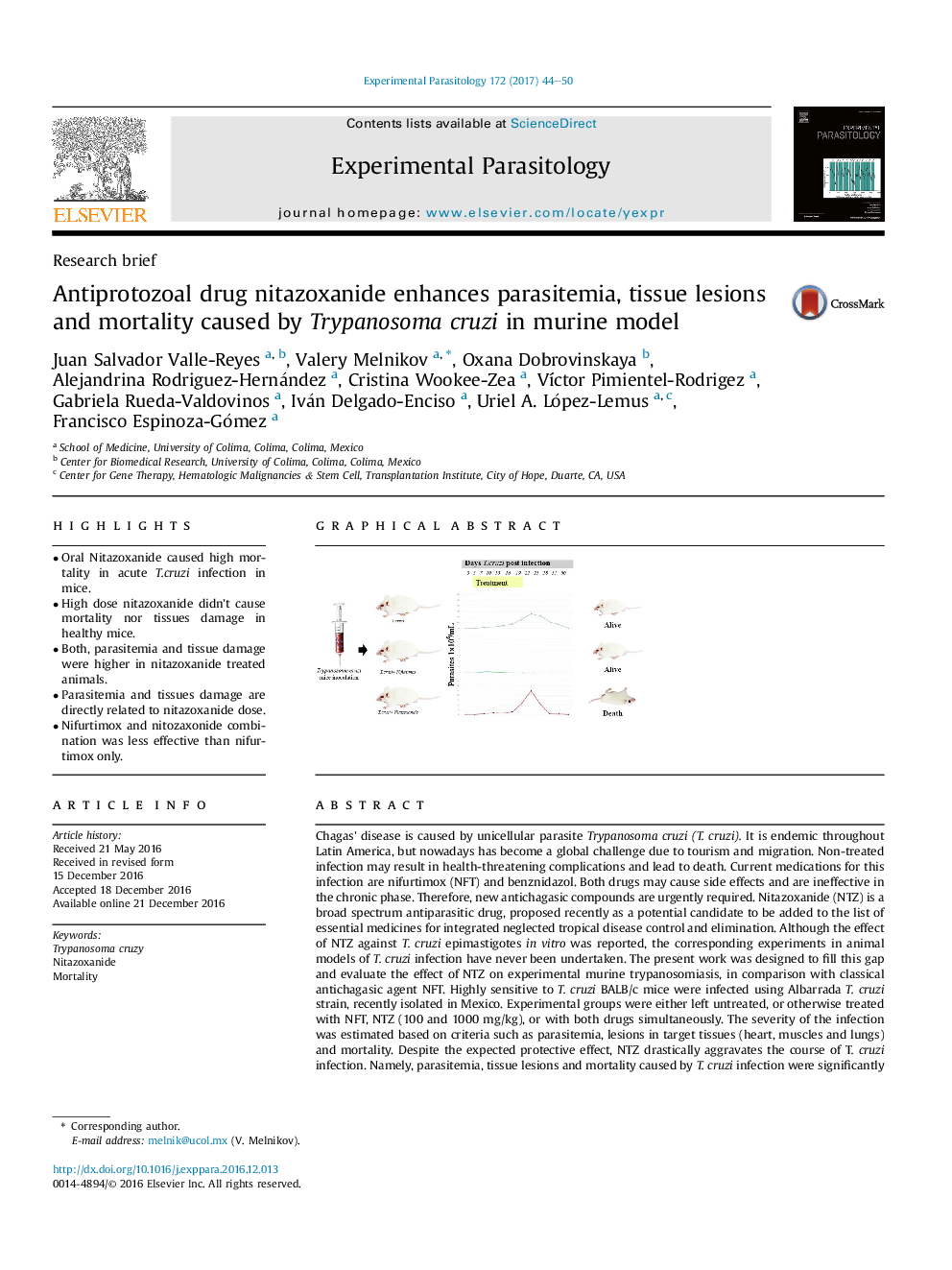| Article ID | Journal | Published Year | Pages | File Type |
|---|---|---|---|---|
| 5741180 | Experimental Parasitology | 2017 | 7 Pages |
â¢Oral Nitazoxanide caused high mortality in acute T.cruzi infection in mice.â¢High dose nitazoxanide didn't cause mortality nor tissues damage in healthy mice.â¢Both, parasitemia and tissue damage were higher in nitazoxanide treated animals.â¢Parasitemia and tissues damage are directly related to nitazoxanide dose.â¢Nifurtimox and nitozaxonide combination was less effective than nifurtimox only.
Chagas' disease is caused by unicellular parasite Trypanosoma cruzi (T. cruzi). It is endemic throughout Latin America, but nowadays has become a global challenge due to tourism and migration. Non-treated infection may result in health-threatening complications and lead to death. Current medications for this infection are nifurtimox (NFT) and benznidazol. Both drugs may cause side effects and are ineffective in the chronic phase. Therefore, new antichagasic compounds are urgently required. Nitazoxanide (NTZ) is a broad spectrum antiparasitic drug, proposed recently as a potential candidate to be added to the list of essential medicines for integrated neglected tropical disease control and elimination. Although the effect of NTZ against T. cruzi epimastigotes in vitro was reported, the corresponding experiments in animal models of T. cruzi infection have never been undertaken. The present work was designed to fill this gap and evaluate the effect of NTZ on experimental murine trypanosomiasis, in comparison with classical antichagasic agent NFT. Highly sensitive to T. cruzi BALB/c mice were infected using Albarrada T. cruzi strain, recently isolated in Mexico. Experimental groups were either left untreated, or otherwise treated with NFT, NTZ (100 and 1000 mg/kg), or with both drugs simultaneously. The severity of the infection was estimated based on criteria such as parasitemia, lesions in target tissues (heart, muscles and lungs) and mortality. Despite the expected protective effect, NTZ drastically aggravates the course of T. cruzi infection. Namely, parasitemia, tissue lesions and mortality caused by T. cruzi infection were significantly higher in NTZ-treated mice groups, even in comparison with untreated infected animals. NTZ by itself no produced mortality o tissue damage, and NFT showed an expected protective effect. Our results indicate that NTZ cannot be considered for Chagas' disease treatment. Moreover, NTZ should be used with caution in patients positive for T. cruzi infection.
Graphical abstractDownload high-res image (141KB)Download full-size image
